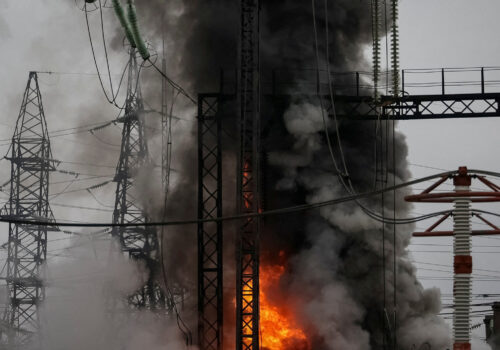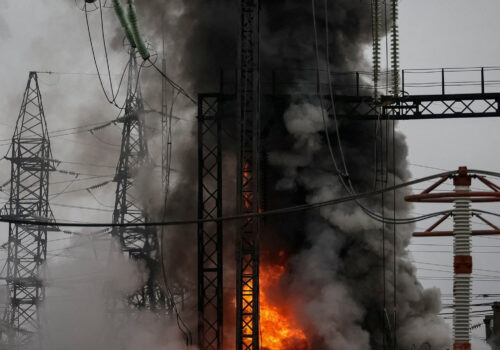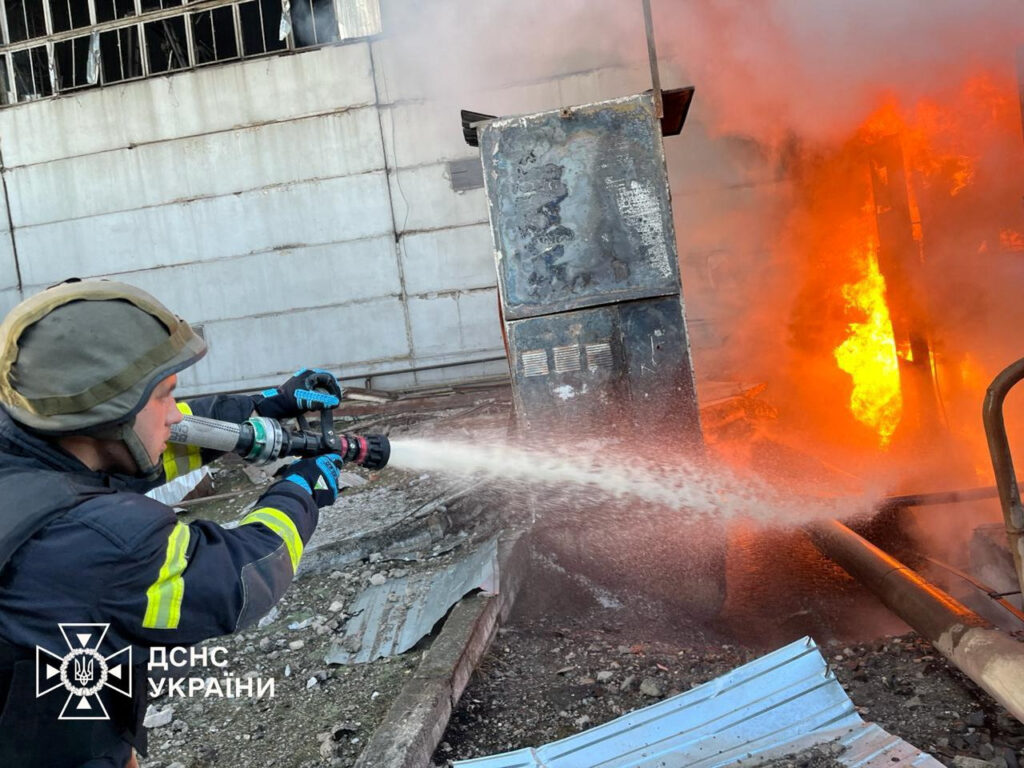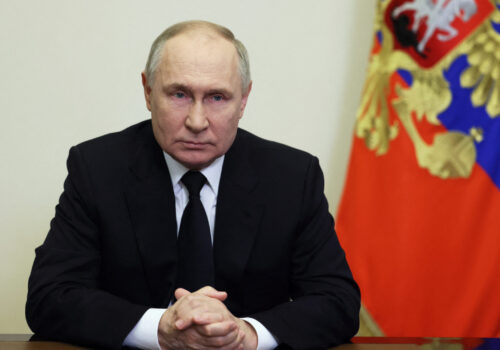
Ukraine pleads for Patriot air defense systems as Russia destroys power grid

Ukraine’s top diplomat is becoming increasingly undiplomatic in his quest to bolster the fraying air defenses of his beleaguered country. Ukrainian Foreign Minister Dmytro Kuleba says he is no longer holding back as he desperately tries to secure additional Patriot air defense systems to protect Ukraine’s cities and civilian infrastructure from Russian bombardment. “Give us the damn Patriots,” he told Politico in late March.
Speaking to the Washington Post this week, Kuleba explained that his tough new tone reflects the growing sense of exasperation felt by many in Kyiv at the apparent lack of urgency among Ukraine’s partners amid growing shortages of vital military aid. “We’ve tried everything, and nothing seems to work,” he commented. “The feeling that extraordinary decisions are needed on a regular basis to end this war with a victory for Ukraine is gone.”
Kuleba says his team has identified more the one hundred available Patriot systems that could potentially be handed over to Ukraine. Officials in Kyiv say they need 26 systems in order to provide comprehensive cover for the entire country. The immediate objective is to acquire seven Patriot systems to guard key targets against Russian airstrikes. EU partners including Germany have vowed to assist in the search for Patriot systems, but there have yet to be any breakthroughs.
Stay updated
As the world watches the Russian invasion of Ukraine unfold, UkraineAlert delivers the best Atlantic Council expert insight and analysis on Ukraine twice a week directly to your inbox.
Ukraine’s hunt for Patriot air defense systems is taking place against the backdrop of an escalating Russian air offensive that is capitalizing on months declining Western military support and prolonged deadlock in the US Congress over a major Ukrainian aid package. With gaps now growing in Ukraine’s air defense network and individual air defense units increasingly obliged to ration their dwindling resources, Russia has launched a series of overnight attacks in recent weeks that have decimated much of Ukraine’s power grid.
Ukraine’s second-largest city and former capital, Kharkiv, has been particularly hard hit. Located just a few dozen miles from the border with Russia in eastern Ukraine, the city has been subjected to an intensive bombing campaign since mid-March that has caused extensive damage to residential districts and civilian infrastructure. In recent weeks, hundreds of thousands have been left without power for extended periods.
The destruction in Kharkiv has been so severe that some analysts now believe Russia’s objective is to empty the city of its more than one million residents ahead of an anticipated summer offensive. “The Kremlin wants to make Ukraine’s second city unlivable,” reported Britain’s The Economist in early April.
Eurasia Center events

The latest wave of Russian missiles and drones struck targets across Ukraine early on April 11. In an indication of Ukraine’s increasingly ineffective air defenses and mounting vulnerability to Russian bombardment, all of the Kremlin’s hard-to-intercept hypersonic and ballistic missiles reportedly reached their objectives, according to the Kyiv Post.
A major power plant close to Kyiv was among those destroyed in the overnight attack, dealing a further significant blow to Ukraine’s energy resilience. The Trypilska Thermal Power Plant, the largest supplier of electricity to central Ukraine’s Kyiv, Cherkasy, and Zhytomyr regions, suffered a series of direct hits and was left in ruins.
“The scale of destruction is terrifying,” commented Andriy Hota, the chairman of Ukrainian energy company Centrenergo. Speaking to the BBC, Hota said the Kyiv region plant can be rebuilt with the help of spare parts from elsewhere in Europe, but warned that the facility will remain vulnerable to Russian attack unless Ukraine’s partners provide powerful air defenses. “We can repair. We can do the impossible. But we need protection.”
With each new Russian bombardment destroying more of Ukraine’s civilian infrastructure, there is a growing sense that time is now running out to prevent a humanitarian catastrophe in the country. Unless Ukraine urgently receives additional air defense systems and ammunition, entire regions could soon face rapidly deteriorating conditions without access to electricity and other basic services. This could fuel a new refugee crisis, with millions of Ukrainians entering the EU.
The collapse of the country’s power grid would also cause economic mayhem and dramatically undermine the Ukrainian war effort. This would set the stage for a Russian military victory that would have disastrous consequences for Ukraine itself and for the future of international security. Russia has so far been unable to break Ukraine on the battlefield, but there is now a very real chance that a lack of air defenses will allow the Kremlin to achieve its goals by targeting Ukraine’s increasingly undefended civilian infrastructure.
Peter Dickinson is editor of the Atlantic Council’s UkraineAlert service.
Further reading
The views expressed in UkraineAlert are solely those of the authors and do not necessarily reflect the views of the Atlantic Council, its staff, or its supporters.

The Eurasia Center’s mission is to enhance transatlantic cooperation in promoting stability, democratic values and prosperity in Eurasia, from Eastern Europe and Turkey in the West to the Caucasus, Russia and Central Asia in the East.
Follow us on social media
and support our work
Image: A firefighter works at a compound of power infrastructure facilities, which was hit by Russian missile and drone strikes, amid Russia’s attack on Ukraine, at an undisclosed location in Ukraine April 11, 2024. (Press service of the State Emergency Service of Ukraine/Handout via REUTERS)





